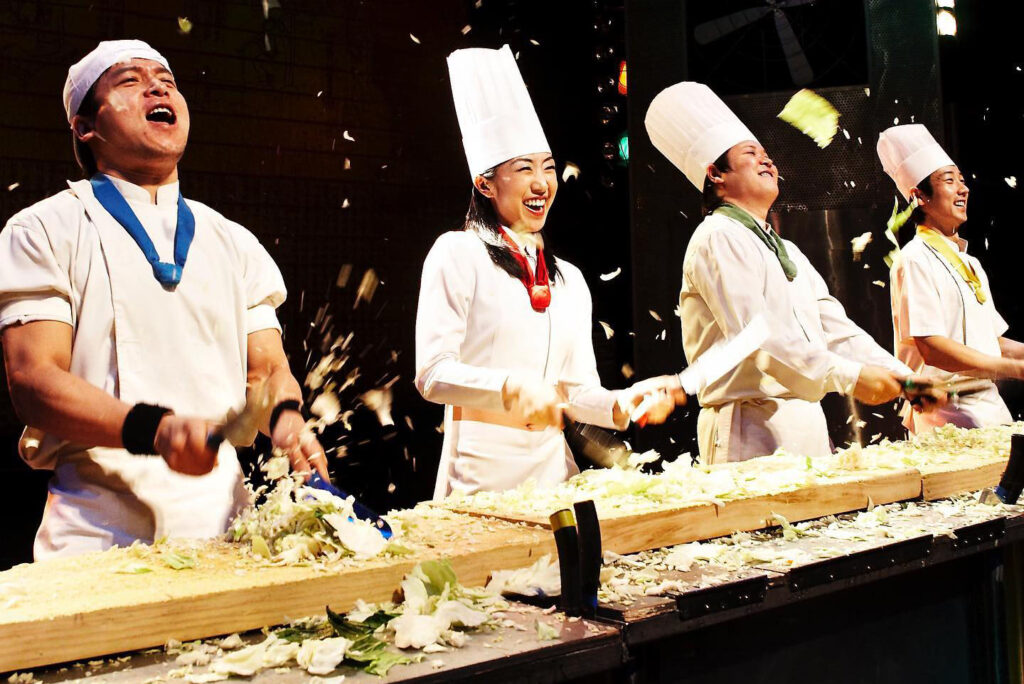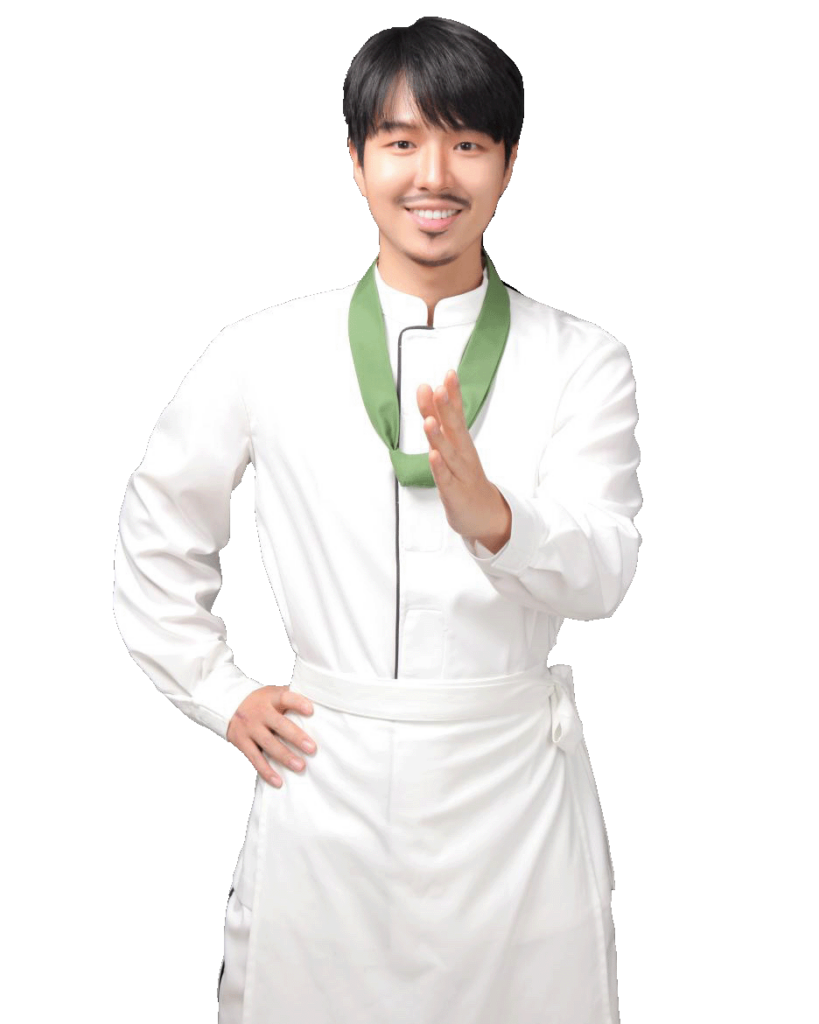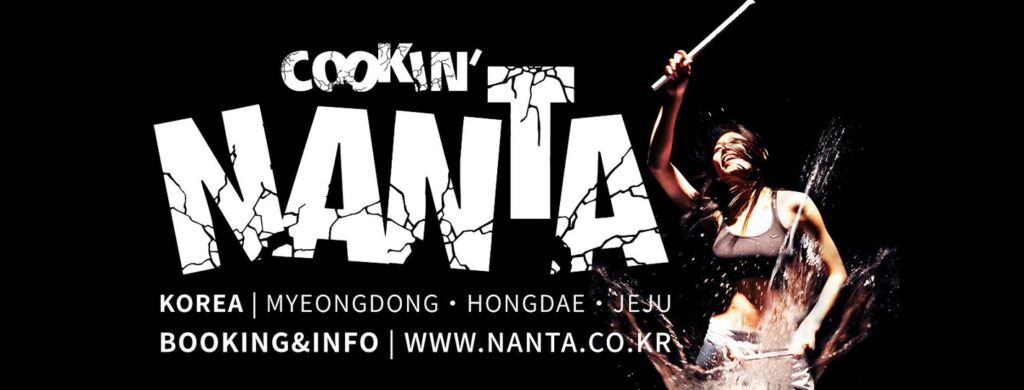With so much amazing entertainment coming from Korean creators, it’s easy to believe we’ve seen everything the culture has to offer. Well, not quite. Let us introduce you to Nanta the non-verbal south Koren comedy show where the orchestra is conducted by the chopping of knives.

First performed in 1997, ‘Nanta’ is Korea’s first performing art to have its permanent concert hall in Myeong-dong, Seoul. ‘Nanta’ means hitting recklessly, with kitchen utensils replacing percussion instruments – knives, cutting boards, pots, plates, – to create powerful rhythms and beats.
Performers dressed in chef’s whites cut cabbage, carrots, and cucumbers to the beat like a drum letting the colourful ingredients fly in front of your eyes. But Nanta also uses food in other spectacular ways, with cocktail making and fire shows captivating viewers. The rhythms and beats created by the performers are Samul-nori rhythms, a traditional Korean genre of percussion music. Samul-nori is a genre of percussion music that originated in Korea, meaning playing with four instruments, mainly used in Korean folk and traditional music; a mix of drums and sticks. Samul-nori is a form of performance that emphasises the emotion and rhythm that can be felt in the instrument performance itself combining traditional rhythms with modern performance styles to produce a show reminiscent of those made famous by The Blue Man Group and Stomp. Lots of sound, lots of visuals, little words.
While it’s relatively rare to find a show outside of Korea, Nanta has been performed in 318 cities in 58 countries around the world and attracts the largest audiences in Korean history. The story is simple: The performance begins with a mission where three chefs teach the manager’s nephew cooking skills while making food for a wedding. Audience participation is key, with viewers acting as the bride and groom. As the preparation of the meal progresses, the show draws on slapstick comedy, pantomime, acrobatics and magic structured around traditional Korean weddings, compete in stacking Mandu, Korean dumplings. At the end, the performers ride off into the sunset as a happy ending to the folksy form of performance popular in Korean theatre.

Hojung Chang became a Nanta actor, fascinated by the fact that it is Korea’s first non-verbal play that men and women of all ages around the world can enjoy. He said he is acting with a great sense of burden and responsibility as an actor who has maintained Nanta’s reputation.
He’s been acting for 20 years and performing Nanta for three months. He always thinks of his determination to perform with the idea of delivering all the energy to the audience before going on stage. He said that the proportion of foreign audiences was overwhelmingly high before COVID-19. Despite this, he wanted to have more opportunities to reach global fans who love Korea and are curious about Korean culture. “If you feel a thrilling percussion instrument based on Korean and exciting traditional tunes, a well-organized comic drama will make you laugh!” Foreign tourists especially liked the percussion scene at the end, which was the highlight of the performance, and he said he wanted to see tourists who were dancing and enjoying the performance with sparkling eyes as soon as possible.
Song Seung-Hwan, the producer of Nanta planned it as a non-verbal performance from the beginning to allow everyone around the world to enjoy the Korean rhythm beyond the boundaries of language. Nanta performed at the Edinburgh Festival Fringe in 1999 which resulted in it being a success, it then debuted on Broadway in New York. But since then, I the show has continued to maintain a large following and appreciation in Korea with regular performances now held at Jeju Island and Seoul in Korea. The show is so popular that there are class people can take for 15 weeks where they learn Nanta and get a certificate at the Institute of Continuing Education for the Future in Yonsei University, Korea.
If you want to see a Nanta performance live in Korea, there are 2 locations. The first being in Seoul at the Myeongdong Cathedral and the second being at Hotel Nanta in Jeju Island.

You can make a reservation on the ‘Get your guide‘ website
Any questions on the official website will be answered, but for a faster response, call the number:
Location 1. Seoul Myeongdon Cathedral 02-739-8288 2. Jeju island Hotel Nanta 064-723-8878
*
All images, Ⓒ The Nanta.
